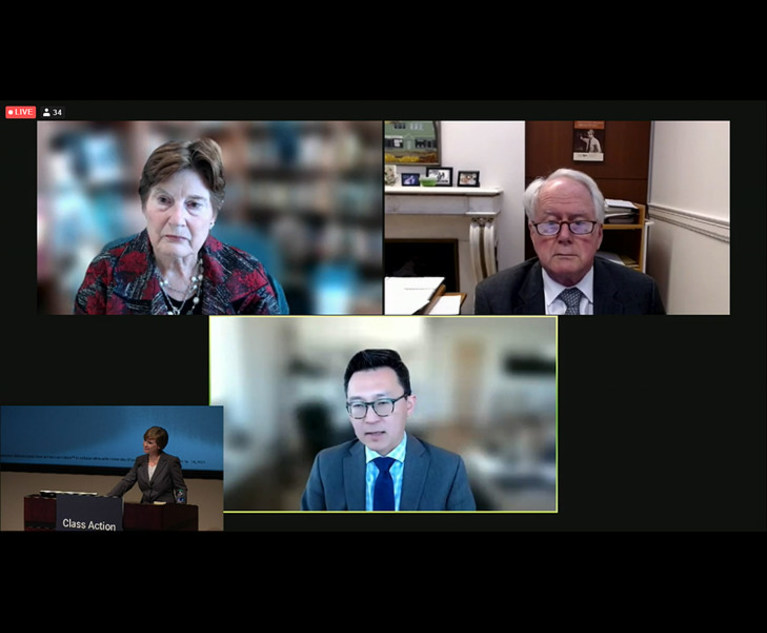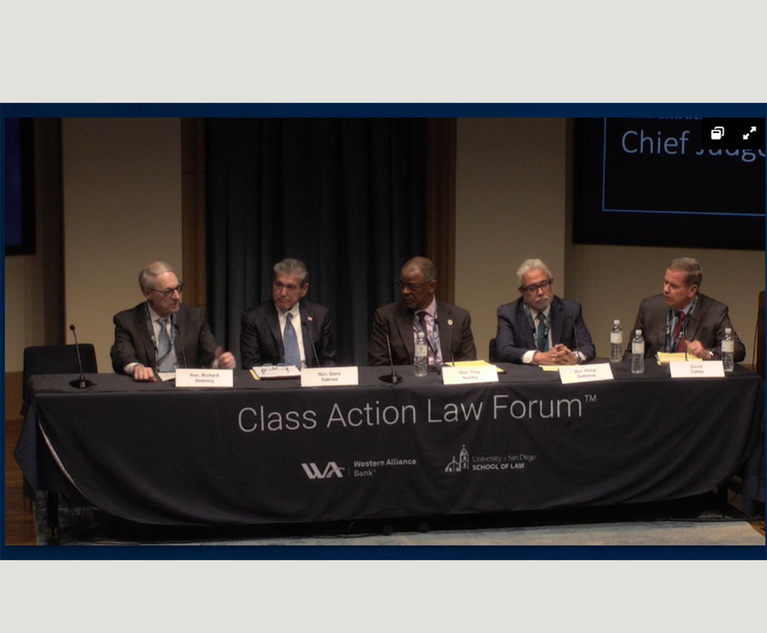One could hardly blame Ninth Circuit Judge M. Margaret McKeown if she wanted to take a victory lap.
She, after all, wrote the dissent in 2020 when two of her colleagues affirmed a jury verdict of more than $60 million against credit agency TransUnion in a case brought under the Fair Credit Reporting Act on behalf of a class of consumers whose names were flagged as matching those on a federal list of terrorists, drug traffickers or other serious criminals. The U.S. Supreme Court last year in TransUnion v. Ramirez reversed the Ninth Circuit majority, clarifying and driving home the point that “no concrete harm” means “no standing.”


 (l-r) The 9th Circuit Judicial Roundtable was moderated by Rebecca Church, Immediate Past President for Federal Bar Association, SD AUSA Chapter and featured Senior U.S. Circuit Judge William Fletcher and U.S. Circuit Judge Kenneth Lee, and U.S. Circuit Judge M. Margaret McKeown, all of the Ninth Circuit, during the Class Action Law Forum sponsored by Western Alliance Bank and hosted by University of San Diego School of Law. Image via streaming video
(l-r) The 9th Circuit Judicial Roundtable was moderated by Rebecca Church, Immediate Past President for Federal Bar Association, SD AUSA Chapter and featured Senior U.S. Circuit Judge William Fletcher and U.S. Circuit Judge Kenneth Lee, and U.S. Circuit Judge M. Margaret McKeown, all of the Ninth Circuit, during the Class Action Law Forum sponsored by Western Alliance Bank and hosted by University of San Diego School of Law. Image via streaming video





